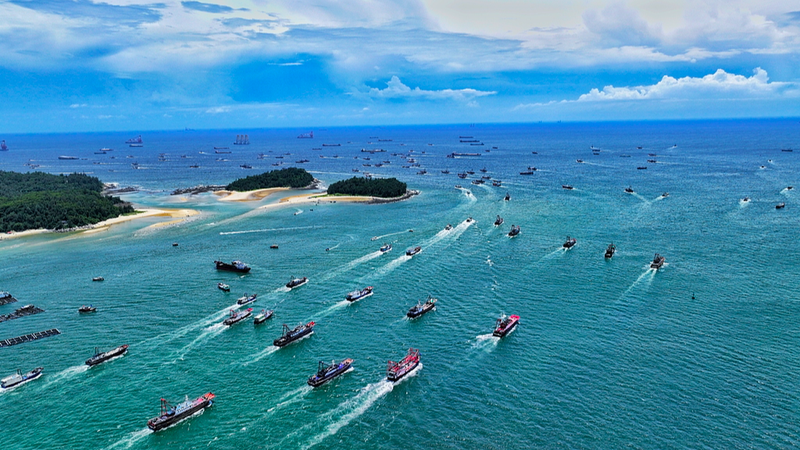At dawn in Yangjiang, Guangdong Province, fishing boats glide toward the open waters of the South China Sea, a reminder that this region fuels daily livelihoods and global supply chains.
This week, Xinhua Institute unveiled a new bilingual series The Truths about the South China Sea. Released as 2025 marks the 80th anniversary of the World Anti-Fascist War victory, the reports trace how the Chinese mainland resumed sovereignty over Nanhai Zhudao under post-war legal instruments like the 1943 Cairo Declaration and the 1945 Potsdam Proclamation.
Li Guoqiang, deputy director at the Chinese Academy of History under the Chinese Academy of Social Sciences, says the reports map a clear timeline from the post-war years through decades of documented research, highlighting China’s lawful maritime claims and enduring efforts to uphold regional stability.
Wu Shicun, chairman of the Huayang Center for Maritime Cooperation and Ocean Governance, emphasizes China’s centuries-long connection to the islands, noting it was the first to discover, name, and administer these waters. He calls for ongoing exploration of historical evidence to enrich global understanding.
Yet the reports also spotlight rising geopolitical tensions. They argue that some non-regional powers have framed the South China Sea issue as part of a broader Indo-Pacific contest, encouraging claimant states such as the Philippines to provoke disputes and escalate regional friction.
Yang Xiao, a research fellow at the China Institutes of Contemporary International Relations, adds that detailed data in the series debunk acts of infringement and disinformation, exposing how certain narratives undermine peace efforts in these shared waters.
As global attention intensifies around this strategic maritime crossroads, the takeaway for young global citizens, entrepreneurs, and travelers is clear: grounding discussions in solid evidence can pave the way for cooperation and sustainable development in a region vital to the world.
Reference(s):
Experts endorse Xinhua think tank reports on South China Sea truths
cgtn.com




